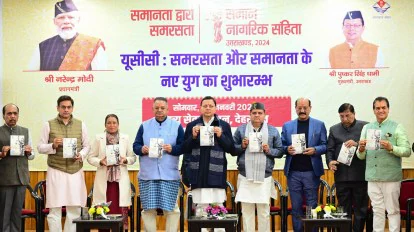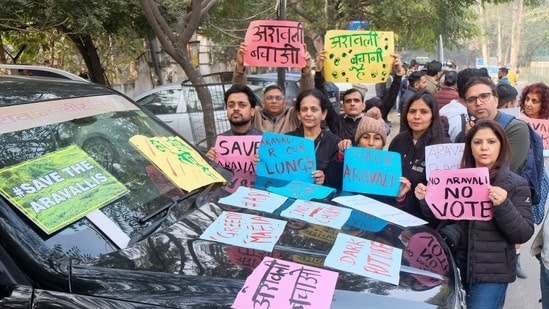Himalaya Harbinger, Rudrapur Bureau
A 16-page form that needs to be filled, Aadhaar-linked OTP, registration fee, a certificate from a religious leader that the couple is eligible to marry if they so wish, and details of previous relationships — these are among the rules prescribed by the Uttarakhand government for registration of live-in relationships under its Uniform Civil Code.
The UCC Act, which was passed by the state Assembly in February 2024, makes it mandatory for couples to register with the government, both while initiating and terminating a live-in relationship. Failure to register carries a jail term up to six months. This applies to residents of Uttarakhand as well as state residents living elsewhere in India.
The Rules, which came into effect January 2, outline the documentation required for the registration process – it can be done both offline and online. Rule 15 (3) in Chapter 5 outlines the “information to be included in the Statement of Live-in Relationship”. These documents are to be attached with a 16-page form – Form 3 of the Annexures to the Rules by those “already in a live-in relationship or intending to enter into a live-in relationship”.
The Rules require in prescribed format “proof of permissibility of marriage between the registrants if they are within the degrees of prohibited relationship”.
“A certificate issued by an official of a religious leader/community head or official of a religious/community body concerned that the customs & usage governing the registrants permit marriage between them,” it states. Rule 3 (u) also defines who is a religious leader: “in relation to a community means a priest of the place of worship of that community or an office bearer of the religious body pertaining to that community”.
Legal experts fear that this requirement could make inter-caste and interfaith relationships virtually impossible. “Simply put, this is a secular law requiring prior religious sanction for eligibility of marriage to even enter into a live-in relationship,” Bengaluru-based senior advocate Jayna Kothari said.
For proof of previous history of relationship, the Rules require details of “marital or live-in relationship prior to the onset of the current live-in relationship”. These documents could include final decree of divorce; final decree annulling a marriage; death certificate of a spouse; certificate of terminated live-in relationship. For marriages dissolved under customary religious practices, then proof of such dissolution would be required.
Under the UCC, the Registrar has powers to issue notice on his own or on the basis of a complaint to an individual to register their live-in relationship. Additionally, apart from conducting a summary inquiry into the veracity of the documents, the Registrar has to inform the legal guardian or parent of the parties registering their live-in relationship if they are below age 21.









